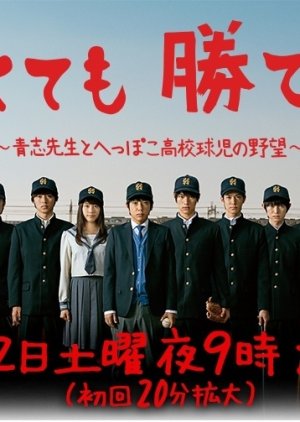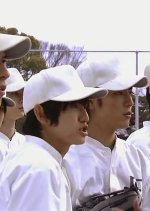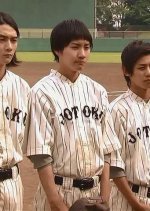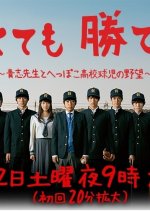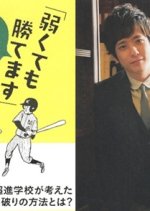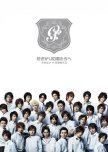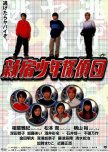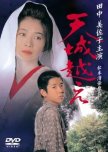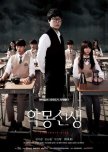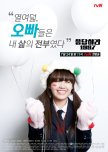 Old Anime Lady Dishes About: Japanese Sports Titles
Old Anime Lady Dishes About: Japanese Sports Titles Tamo Aoshi, diplômé de Todai, désormais au chômage, n'a pas d'autre choix que d'accepter un poste d'enseignant dans son ancien lycée. Il se retrouve à être l'entraîneur de baseball de l'école, composé seulement de cinq joueurs passionnés qui ne savent pas jouer correctement et ne compte aucune victoire à leur actif depuis la création de l'équipe. Aoshi et les joueurs se fixent pour objectif de remporter le championnat japonais de baseball des lycées. (Source: MyDramaList) Modifier la traduction
- Français
- Español
- English
- magyar / magyar nyelv
- Titre original: 弱くても勝てます~青志先生とへっぽこ高校球児の野望
- Aussi connu sous le nom de: Can Win Even If Weak , Yowakutemo Katemasu ~Kaisei Koukou Yakiyuubu no Seori~
- Réalisateur: Sugawara Shintaro, Akashi Hiroto, Ikeda Kenji
- Scénariste: Nemoto Nonji, Kuramochi Yutaka
- Genres: Vie quotidienne, Jeunesse, Sport
Distribution et équipes
- Ninomiya Kazunari Rôle principal
- Fukushi SotaAkaiwa Kimiyasu [Jotoku baseball club member]Rôle Secondaire
- Arimura KasumiTarumi Yuzu [Jotoku baseball club manager]Rôle Secondaire
- Nakajima YutoShirao Tsuyoshi [Jotoku baseball club member]Rôle Secondaire
- Yamazaki Kento Rôle Secondaire
- Hongo KanataKamezawa Junichi [Jotoku baseball club member]Rôle Secondaire
Critiques

The drama has the main tropes of a sports high school drama: one team initially divided, one teacher who is there to change their fates, a girl coach with an attitude, a reporter, bonding and lots of failing.
But not all of it is exactly as it seems. The team is actually bad, really bad and, from day one, they recognize they suck. They won't try to change miraculously overnight, they won't try to out-power their more qualified competitors, they will do what they can with what they have. It's pretty much a Dragon Zakura take on sports, if you will. Which, honestly, is a welcome change in my opinion.
The teacher, who seems to be there to change their fates and lives (played by Nino), is actually kind of really done with everything. All the time. And not in a "I pretend I don't care but I'll stay up late cleaning" kind of done, he seems to genuinely not care. Which, of course, has deep roots in memories and a background story to be resolved, but it pays off because, when you get to see emotional Nino, you feel the intensity much more clearly.
In dramas like this, with so many cliches, what really makes them stand out to me are the characters and their growth. I have to say I was invested with almost all of them (with the exception of a love triangle I really didn't care about enough at all). My special mentions go to Kanata Hongo, Shotaro Mamiya and Kento Yamazaki (those last two have some really interesting story and development together I was very interested in).
All in all, yes, it's filled with cliches, but most of them have their own spin, and it's worth a try. Most of all, my favorite thing about it is that it's unapologetically honest and raw at times. There's a certain scene which is very emotional, for example, and it has absolutely no background music at all, which I thought was a great move to make it even more intense. If you like sports dramas but want something a bit different and don't mind the drama, try this one.
Cet avis était-il utile?

Cet avis était-il utile?

